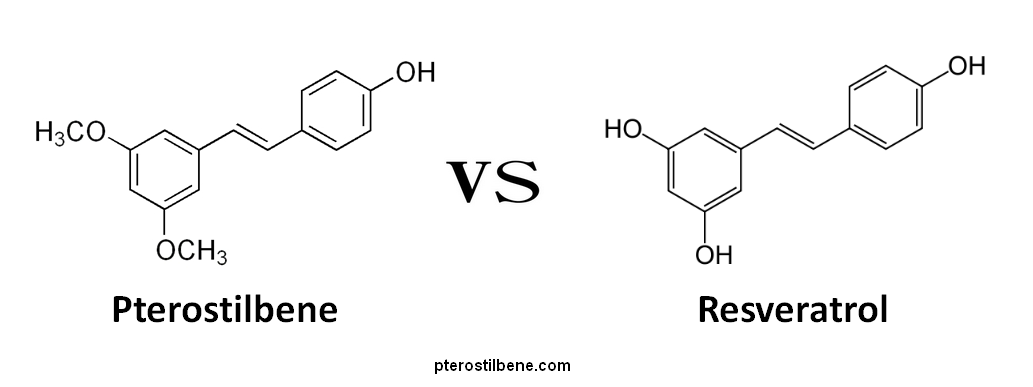I have a new article at Pterostilbene.com. The bottom line is that pterostilbene may be a “better resveratrol”. It is better absorbed, stays in the blood stream longer, and has a stronger effect on insulin metabolism and SIRT-1 than resveratrol. But resveratrol got there first, and there has been much more study of resveratrol in actual animal tests, so it will be a few years at least before we know for sure. Len Guarente’s MIT lab is where resveratrol got its start, and Guarente has recently launched a corporate spinoff to sell a pterostilbene formula.

Discover more from Josh Mitteldorf
Subscribe to get the latest posts sent to your email.

I took Pterostilbene for a short time (approx 3 months) and like resveratrol (part of my routine for about a year) saw no noticeable effects with regard to glucose levels. After reading the results of several exercise studies re: antioxidants, I dropped every single antioxidant I could identify in my daily regimen (including longvida curcumin, Carnosine, ALC, and R-alpha lipoic acid), while still maintaining my intermittent fasting and regular exercise (and still consuming aspirin, metformin, EPA/DHA, magnesium, and mitoq), and morning fastings and post prandial levels dropped.
Thanks, Tim – that’s the kind of personal experimentation from which we can all benefit.
Hi Tim, do you take metformin on a daily routine as an antiaging supplement or do you have a diabetic condition? Can you also tell me what dosage do you use if it s the first case? Just curious. Thank you also for feedback on this matter.
Hi,
from what age do you think it makes sense to consume Pterostilbene?
thanks,
Michal
I don’t think we know enough to say whether pterostilbene can increase life expectancy. It will be awhile before the science tells us at what age to start taking pterostilbene.
Thanks, Michal. I had come across this article, but don’t know what to make of it. Blood pressure went down and LDL went up with ptero alone. LDL is a not good predictor of mortality, or even heart attack rate. High blood pressure is correlated with lower heart attack rate, but probably for indirect reasons.
There is a lot that remains to be figured out. In the meantime, I hope my article is not taken as a suggestion that we should all start taking pterostilbene – we just don’t know enough yet.
Josh, thanks for your, as always, informative post. I was considering taking pterostilbene until I happened to notice the study in the link below. It is, admittedly, very small, but it is a human trial. Pterostilbene had a negative impact on LDL cholesterol in humans unless taken together with grape extract. I wonder what your take on this is. Did you review this study?
http://www.ncbi.nlm.nih.gov/pmc/articles/PMC4099343/
Always a hard time chosing when I come to this site: http://www.iherb.com/search?kw=Pterostilbene#p=1
I was just cheking its availability, it seems there are ppl out there willing to take it if it s already produced and marketed by several companies.
I still think readers of your blog will want to be aware of a human trial. It did not work out all that well. After all, lower bloodpressure is ‘good’ or ‘bad’ depending on what mechanism causes it. Worse LDL cholesterol is certainly bad.
I am fully aware that you advise caution in this, but some readers need to check this out before they start taking pterostilbene supplements. Still, as you say, this is an extremely interesting compound and it’s gratifying to see that those who combined ptero with grape extract profited from it.